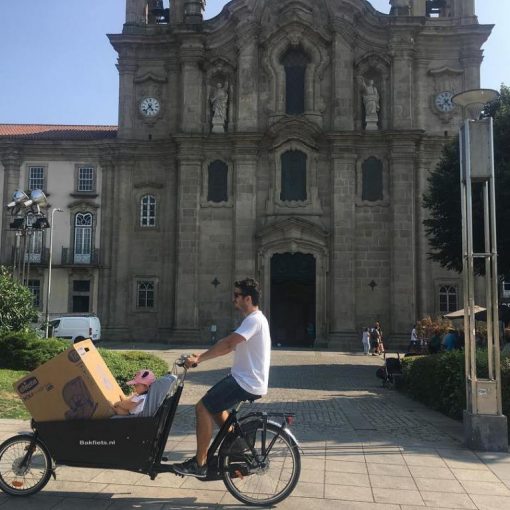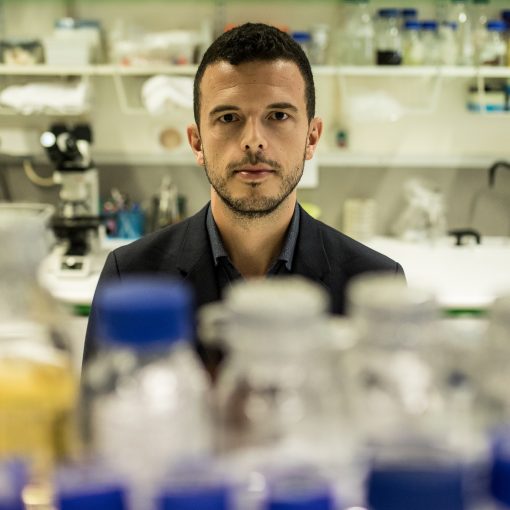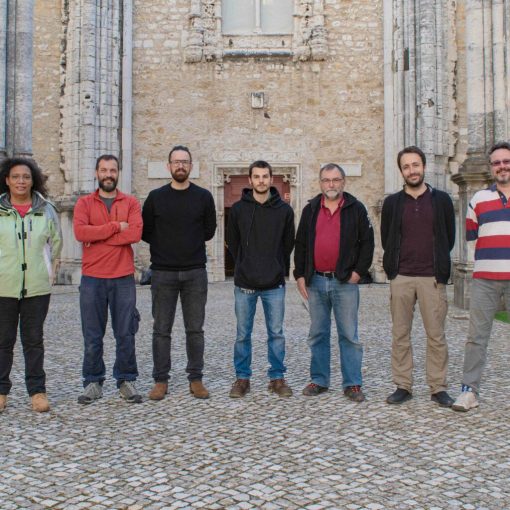The removal efficiency of the virus load responsible for COVID-19 in wastewater treatment processes in WWTP is one of the most relevant conclusions of the SARS Control research project.
The consortium responsible for the project, involving the Águas de Portugal Group, the University of Lisbon and the University of Minho (through the Center for Biological Engineering of EEUM), will present the results on March 31, in an online session.
Contributing to a better understanding of the effectiveness of existing sanitary barriers at Wastewater Treatment Plants (WWTP) and to the development of appropriate monitoring procedures were the main objectives of the SARS Control research project, which sought to understand the dynamics of the behavior of the SARS-CoV-2 virus, responsible for COVID-19, along urban wastewater treatment lines (liquid phase and solid phase).
Started in December 2020, with financial support from FEDER through the Compete 2020 program, the SARS Control project developed its activities in seven large WWTPs, located in different parts of the country (Lisbon, Vila Nova de Gaia, Algarve, Setúbal, Leiria and Guimarães), representing more than 20% of the Portuguese population.
During eight months, regular monitoring of SARS-CoV-2 in wastewater was carried out and the behavioral profile of the virus (measured by quantifying the respective genetic material) was characterized in the raw effluent and throughout the treatment stages of each of the project’s wastewater treatment plants, in a total of about 1,500 samples analyzed.
It was found that WWTPs are efficient in viral load removal, especially in the liquid phase (water), highlighting the primary treatment step, followed by biological treatment. It was also proven that treatments subsequent to the secondary treatment can increase the efficiency of viral load removal.
The correlation of SARS-CoV-2 with other microbiological parameters was also analyzed in order to identify new biomarkers to assess, in an expeditious manner, the presence of the virus in the various matrices of the wastewater.
The consortium responsible for SARS Control is led by AdP VALOR, a company of the AdP – Águas de Portugal Group, which is also represented by the wastewater management companies Águas do Algarve, Águas do Centro Litoral, Águas do Norte, Águas do Tejo Atlântico, SIMARSUL and SIMDOURO. From the National Scientific and Technological System, the Centre for Ecology, Evolution and Environmental Change of the Faculty of Sciences of the University of Lisbon (represented by FCiências.ID, Association for Research and Development of Sciences), the Laboratory of Analysis of the Instituto Superior Técnico (LAIST) of the University of Lisbon, and the Centre for Biological Engineering of the University of Minho (CEB/UMinho).
Monitoring carried out under the SARS Control project confirmed that the evolution of the SARS-CoV-2 load in the wastewater inflowing into the monitored WWTPs followed, over the same period, the trends of increasing or decreasing COVID-19 incidence in the populations of the corresponding regions, as well as the trends of circulation of the variants of concern (alpha and delta) in the community.
These results reinforce the usefulness of wastewater-based epidemiology as a complementary monitoring tool of the evolution of the pandemic, confirming the results of previous studies, in particular of the COVIDETECT project on the creation of an early warning system of SARS-CoV-2 virus circulation in the community through the analysis of wastewater, a project carried out by a consortium that included most of the entities responsible for SARS Control.
Aiming to raise awareness of the importance of knowing the effectiveness of existing sanitary barriers in wastewater treatment plants and to develop expeditious and adequate monitoring processes, the main results of SARS Control will be shared with sanitation system managers in a session in digital format, on March 31st, at 2:30pm, in which Madalena Alves, a lecturer and researcher from the School of Engineering, will participate.



